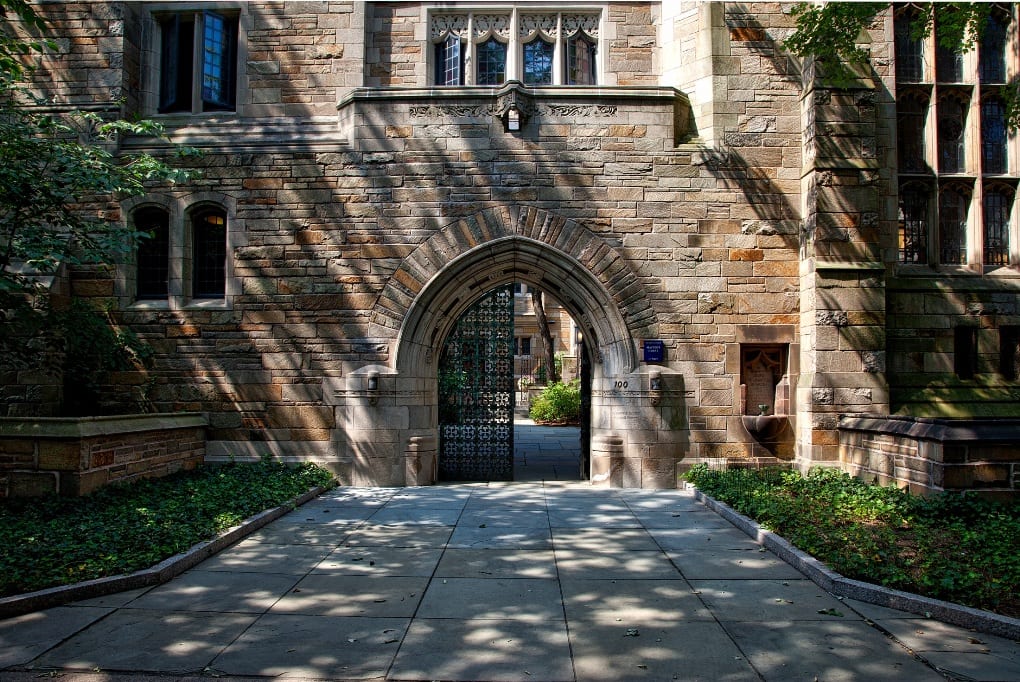Life can get in the way of big plans and many people who start college do not finish their degrees. This is where degree completion programs come into play as they let you adequately fill the missing credits to a degree left on hold.
But what are they exactly? And are they the right fit for you? Whatever the reason may be for stopping your studies, finally getting your undergraduate degree is only a few steps away.
Read on to learn everything you need to know about these programs, including the best schools to complete them.
What Are Degree Completion Programs?

A degree completion program is an academic program that allows for the completion of college degrees. These specially designed programs are for students who have started but have yet to complete their four-year undergraduate degrees.
How does it work? Put simply, a degree completion program provides students the chance to transfer prior credits to a new or existing major at select schools . This is possible whether the program is a bachelor of arts or a bachelor of science degree. College credits don’t have an expiration date, so there’s no rush for students.
This system helps students finish off a few semesters through online learning. It also adds some flexibility in an already busy schedule as they complete a degree previously left on hold.
As a bonus, these accelerated degree programs eliminate huge financial burdens, making them more appealing than the option of starting all over.
Are They Right For You?

Completion programs are helpful in a myriad of ways. Firstly, they’re a reliable option if you’re looking to achieve your higher education goals. Secondly, those who have completed only an associate degree are often eligible for the programs.
This makes the programs a perfect opportunity for community college students who have just finished their two-year degree. An adult learner who has a lifetime of useful experience but never got around to earning a degree is also a perfect candidate.
Using these programs to polish off an undergraduate degree can help you climb to the top of the company ladder. On top of that, this accomplishment can be a source of pride for you.
Factors to Consider When Choosing a Program

If you’ve found a school with an online completion program, the obvious question would be: What’s next? You need to thoroughly examine the program offered by the school you are interested in. Make sure to keep the below factors in mind as they can make or break a completion program.
Does the School Offer Your Major?
For starters, you need to make sure the degree completion program is what you are interested in. Did you previously study social science and want to complete that major?
Degree completion programs don’t offer all majors, so make sure yours is available with the correct options. This will avoid confusion in terms of transferring credits. Another factor to consider is accreditation. A school’s accreditation speaks for its quality of education.
Is the School’s Support Staff Reliable?
A school with a reliable staff of advisors, counselors, and admission professionals can make your life a lot easier. Many regionally accredited schools have fantastic academic and career planning options. These services are complete with understanding professionals who will help you transition into the career of your choice.
These advisors point you in the best direction possible. Talented career coaches can effectively transform a computer science or information technology degree into a fruitful career.
Some choice examples are careers in web development, database administration, and even cyber security. While some may not see this as an utmost priority, it’s vital to your experience.
Online, Hybrid, or On-Campus?
Next, evaluate your learning options. Courses that are synchronous, meaning professors and students interact in real-time, may be preferred over asynchronous, online courses. It simply depends on your learning style and availability.
Degree completion program formats vary from school to school. A hybrid course, for example, holds in-person and online meeting times. If your schedule is usually bogged down with prior commitments, choosing an online course may be in your best interest. Doing so would allow you to attend to your studies at your own pace.
Does the School Accept Transfer Credits?
Most importantly, you need to determine if the school will accept your transfer credits. By transferring credits to a degree completion program, you trim a lot of the fat off a standard undergraduate degree. If you have finished many core courses offered by colleges and universities, you can bypass them by transferring your credits.
This gives you the freedom to jump right into your chosen program without wasting time on already-completed courses. It also fuels the entirety of the degree completion program.
Additionally, some schools will potentially offer school credits for proof of expertise in a specific subject. For example, you can come out ahead if you have a long career in technology. Having a solid background can save you a lot of time.
The number of transfer credits depends entirely on the student’s previous experience. If many of your transfer credits apply, you could be completing a degree in no time.
For example, if you already have 90 credits in liberal studies, you can transfer to a degree with 120 credits. With only 30 credits hours left, you will only need a handful of classes to complete the degree.
What Is the Cost of Attendance?
The cost of degree completion programs vary by institution. However, most programs would typically start with a per-credit rate of $300. The method of learning, i.e. online or on-campus, also affects the fees. For instance, some universities that offer online learning programs charge additional fees under “academic technology fee.”
There’s a lot of thought that goes into choosing the right program for you. Make sure you’ve covered all the above points before you even begin the application process.
Best Degree Completion Programs

Let’s now examine some of the most noteworthy, online degree completion programs in the United States.
| University | Location | Graduation Rate |
| University of Florida | Gainesville, FL | 87.2% |
| Boston University | Boston, MA | 88% |
| Northeastern University | Boston, MA | 88% |
| Drexel University | Philadelphia, PA | 74% |
| Kansas State University | Manhattan, KS | 64% |
The University of Florida
This university offers a selection of over 20 different majors. Some of its most popular options are a BA in criminology, BS in computer science, and BS in business administration.

"Career Karma entered my life when I needed it most and quickly helped me match with a bootcamp. Two months after graduating, I found my dream job that aligned with my values and goals in life!"
Venus, Software Engineer at Rockbot
To apply, you need a GPA of 2.5 and a minimum of 60 transfer credits. However, some completion program majors may require you to have more prerequisite coursework completed before joining.
They especially encourage those with an associate degree to join their ranks through their ‘Finish@UF’ program. The University of Florida allows for those who attended any public university in Florida to transfer all of their credits. This is a huge burden lifted for potential completion program students.
Boston University
Through BU Online, Boston University offers flexible, online degree completion programs. Students must have a minimum of 52 transfer credits to apply. These completion programs focus on liberal arts. These include social science major such as history and literature, humanities, and philosophy.
The average time for a program is about 18 months. Boston University’s online course load has garnered multiple awards. These include:
- Blackboard Catalyst Award for Teaching & Learning
- Excellence in Institution-Wide Online Education
- 21st Century Award for Best Practices in Distance Learning
- Best Practices Platinum Award for Distance Learning Programming
Northeastern University
Another Massachusetts-based school, Northeastern University offers a wide variety of online courses. Northeastern’s regular online degrees have varied majors to choose from, including information technology, liberal studies, and psychology.
Northeastern University proves its reliability by allowing transfer credits from multiple states and institutions. Northeastern University particularly emphasizes various forms of interdisciplinary studies. These manifest as participation in work projects and co-ops, among others.
Its online wing, Northeastern Online, offers well over 80 different majors for students. It has degrees and certification programs in accounting, biology, information technology, and product management.
Drexel University
Located in Philadelphia, Drexel University is a diverse and esteemed city campus. Drexel’s most popular areas are business and management and engineering majors. However, it does offer a colorful bevy of degree completion programs in multiple fields.
Its online program boasts an insane 125 major and certificate programs available for completion. A popular option for completion programs is the RN to BSN Completion program. This is designed to enhance global health care perspectives among nurses who hold an associate degree in nursing. Other programs cover education, criminal justice studies, and business administration.
Degrees at Drexel are customizable through its Bachelor of Science in General Studies program. This is designed for students to design their curriculum according to their interests and academic needs.
A potential student will need a minimum of 60 credits to transfer. Drexel recommends at least 90 credits for a more streamlined, accelerated experience. To graduate from its bachelor’s degrees programs, students must fulfill a 120-credit requirement.
Kansas State University
Kansas State University, or ‘K-State,’ offers well over 70 different, fully online majors. Just because you initially enrolled as a social science or criminology student doesn’t mean there aren’t customization options.
Kansas State University allows for in-depth concentrations and different electives for curious students. For example, even if a student chooses an education major, they can still opt for a concentration in multiple subfields. These include early childhood education, special education, or educational studies.
Kansas State University is exceptionally welcoming, only requiring a student to have a minimum of 24 transfer credits. If you achieved a less than ideal score on your SATs or ACTs, Kansas State University has you covered. Furthermore, if you’re aged 21 or above, or have transfer credits exceeding 24, you don’t need to submit test scores.
Some Final Thoughts

Degree completion programs can be a saving grace for your education. Thousands can and have already benefited from their existence. Those with an associate degree or adult learners with job experience can reap the rewards of completion programs.
They’re also a great option for veterans and a fantastic way to further a career or unlock new job opportunities. Other crucial benefits include cutting back on time and tuition expenses.
Whether you’ve encountered financial troubles, unforeseen circumstances, or disillusionment, you have options. Now is the perfect time to re-enroll into a solid accelerated program. With a completion program, you can complete that lingering undergraduate degree in no time.
About us: Career Karma is a platform designed to help job seekers find, research, and connect with job training programs to advance their careers. Learn about the CK publication.



